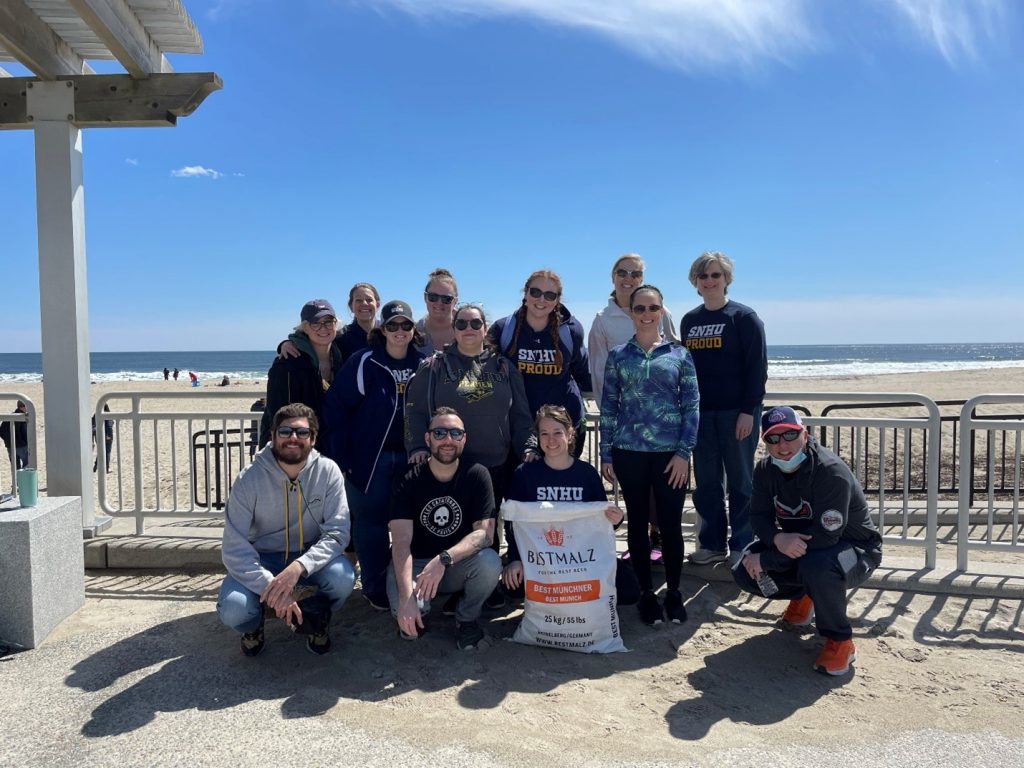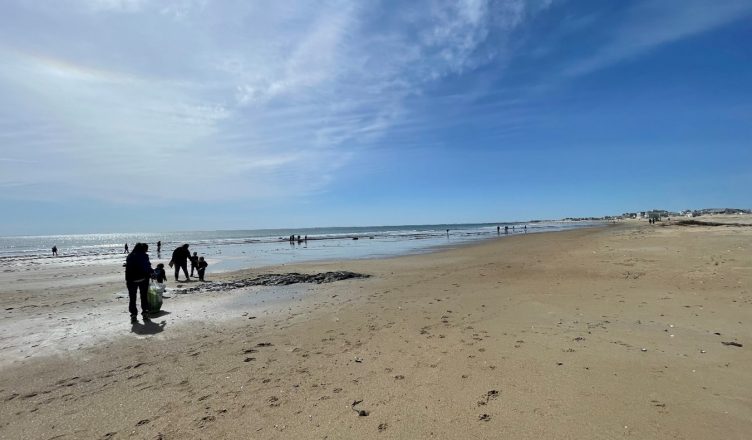For the first time in a few years, we are hosting monthly beach cleanups for anyone to attend! These cleanups will be on the first Saturday of every month at Hampton Beach from 10:00 am to 12:00 pm.
The next cleanups are on January 7, February 4, and March 4, 2023.
Registration is required – click here to register. We’re super excited to host these cleanups, and we hope you can join us!
Clean the beach and receive a voucher for a free small hot or cold drink at the Coffee Break Cafe, just a short walk from the Blue Ocean Discovery Center on the Hampton strip!
Public Beach Cleanup Details
- We will meet at the Seashell Stage at 10:00 am
- We collect data at all beach cleanups, which contributes to our marine debris research. Please download the Marine Debris Tracker app (available for both iPhones and Androids) before heading to the beach, as service can be unreliable on the coast. You need to make an account on the app to be able to track debris. Make an account with your email address, select Blue Ocean Society for Marine Conservation as the organization, and you’re ready to clean the beach! We will also have paper data cards available.
- Please bring gloves. Gardening gloves, thin winter gloves, and outdoor work gloves all work well. We aim to avoid disposable plastic gloves to limit our contributions to pollution from single-use plastic products.
- We recommend wearing layers and comfortable shoes. The temperature on the coast can be 10-15 degrees cooler than inland.
- Please register for the cleanup so we can have enough supplies for everyone.

Brief History of our Beach Cleanups
We’ve been conducting beach cleanups at Blue Ocean since 2001 and have since collected over 195,000 pounds of debris from local beaches around the seacoast area. At the end of every season, we compile all our data and make a fact sheet that includes the total weight and number of debris items, top items collected, pounds of trash per town, and more. In 2021 alone, we collected 72,565 items weighing 3,951 pounds during 248 beach cleanups. We’re already started entering our 2022 cleanup data, and we’re excited to share it with you in the upcoming months!
Why Are Beach Cleanups Important?
Even with carry-in, and carry-out regulations and garbage bins near the beach, trash still makes its way to the beach. Trash can make its way to the beach from littering, or it may be carried by wind and rain. One study estimated that there will be more plastic in the ocean than fish by 2050. That is a crazy statistic if it becomes true! One 2014 study estimated that a minimum of 5.25 trillion pieces of debris, weighing 268,940 tons, are floating in the ocean. Surprisingly, in that same study, 75.4% of those 5.25 trillion pieces are considered macroplastics (>200 mm), whereas 13.2% fit into the microplastic category (0.33–4.75 mm.).
Impacts of Litter on Marine Life
Whether macroplastic or microplastic, fish and other marine organisms can ingest these plastics. If a turtle mistakes a plastic bag for a jellyfish and consumes the bag, it can cause damage or block the intestines. Even though they are small, microplastics can have impacts. Plastics can bioaccumulate within the animal. This means as the organism consumes microplastics, the chemicals and contaminants in the plastics build up over time and can cause harm. Plastics can also travel up the food web in a process known as biomagnification, which can ultimately affect the food we eat! By cleaning up the beach, you’re helping marine life avoid the harmful impacts of litter.
There are many more reasons beach cleanups are critical, but I hope I’ve convinced you enough to join our cleanup efforts! You can also think of all the fun you’ll have enjoying Hampton Beach in the offseason with no tourists! Sounds like a great time to me!






